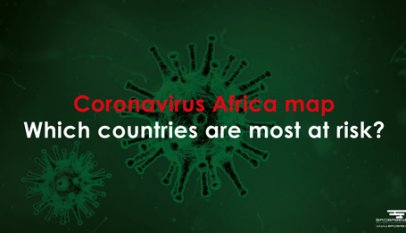
Forty-four African countries are included in the 2018 edition of the index. The region lags the rest of the world in terms of e-commerce readiness. Mauritius – with a ranking of 55 – is the highest ranked African country, and as many as nine of the bottom ten countries are in Africa. However, the continent is showing progress in key indicators related to B2C ecommerce. Since 2014, sub-Saharan Africa has surpassed world growth on three of the indicators used in the index.
The top ten ranked African countries in the index are shown above.
Highest ranked Mauritius has a considerable 13 point higher score than the next African country. This small island developing state scores relatively high in all four areas but particularly with regard to the share (90%) of the population having an account. In an effort to get more SMEs online, the Government launched a shopping portal in 2018 offering tax free purchases.
Nigeria, the most populous African nation, ranks second, largely thanks to a significant increase in postal reliability as measured by the Universal Postal Union (UPU). As Africa’s largest B2C e-commerce market (in terms of both number of shoppers and revenue), reliable delivery of products is critical.
South Africa is third, level with several other African countries (Cabo Verde, Gabon, Mauritius and Morocco) for its Internet penetration, with around six in ten inhabitants using the Internet in 2017. South Africa leads by some margin in the number of secure Internet servers per one million people, an indication of websites accepting online sales and payments. Local online shopping sites such as “Bidorbuy” and “Takealot” dominate the B2C market and are backed by local and international venture capital investment. Payments are facilitated with instant transfers through bank accounts and several domestic digital wallets. One challenge is getting more SMEs on board. E-commerce integrator, UAfrica, provides multichannel platform services that simplifies the process of establishing a shopping site.
South Africa ranks third, ahead of Tunisia, Morocco, Ghana, Kenya, Uganda, Botswana and Cameroon, all in the top 10 African countries with the best readiness index in the world. e-commerce in 2018.
Although Africa’s e-commerce leaders are performing well, Mukhisa Kituyi, UNCTAD’s Secretary General, believes that “Africa is lagging behind the rest of the world in preparing to engage in the digital economy and benefit from it. Three-quarters of the African population have not yet started using the Internet. ”
He explains that there was “at least 21 million online customers in Africa last year, less than 2% of the global total, with three countries – Nigeria, South Africa and Kenya – representing nearly half of this total on the continent. ” According to Mukhisa Kituyi, African countries need to increase their penetration of the Internet to develop e-commerce, many of them must also ensure that more current Internet users trust the online market for their purchases.
UNCTAD estimates that in 2017, only 13% of Internet users made an online purchase in Africa compared to 68% in developed countries, as in the European Union.
Source : United Nations Conference on Trade And Development (UNCTAD)
Baobab News
La Rédaction
S.MARAI
© Crédit Graphiques : Baobab News



